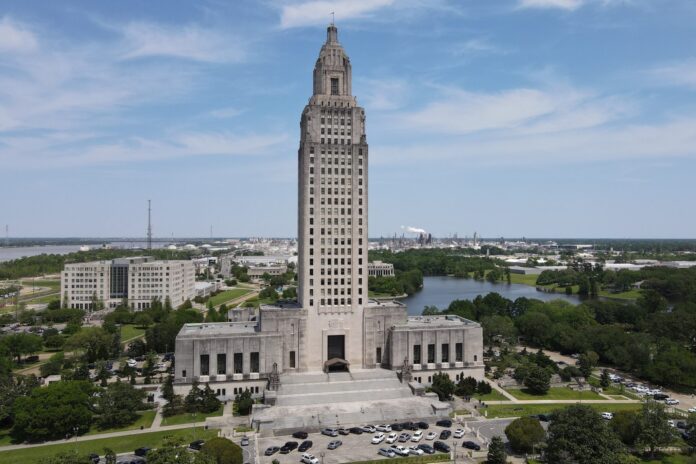Baton Rouge, LA (7/14/2023) – The Louisiana Legislature will return for a veto override session Tuesday, largely driven by a desire to resurrect a bill that would ban gender-affirming health care for transgender children and teenagers.
The majority of lawmakers declined to submit ballots that would have canceled the veto session by midnight Thursday, according to state Rep. Jerome Zeringue, R-Houma, signaling they are motivated to override Gov. John Bel Edwards.
The governor vetoed 25 bills and portions of three pieces of budget legislation approved by lawmakers.
Edwards, a Democrat, vetoed the transgender health care ban, characterizing the bill as cruel, discriminatory, and legally ambiguous. But the Republican-majority Legislature is under pressure from conservative activists to take a hardline stance on transgender restrictions.
Lawmakers can bring up any vetoed item for an override, though they have to get a two-thirds majority vote in the House and Senate to be successful.
House Speaker Clay Schexnayder, R-Gonzales, said it would be “strictly left up to the [House] members whether or not they have the votes to override a veto.”
On top of the transgender health care ban, two more vetoed bills that put restrictions on LGBTQ+ youth are expected to get override votes.
One would limit the pronouns and names transgender students can use in K-12 public schools. Another, dubbed the “Don’t Say Gay” bill, would prohibit discussion of sexual orientation and gender identity in public schools.
Lawmakers have also said they will push for override votes on public safety measures, including legislation that would require more 17-year-olds to be treated as adults in the criminal justice system.
Rep. Michael Echols, R-Monroe, has said he also wants his two vetoed bills to be reconsidered next week. One would limit foreign people and entities defined as “adversaries” – including people from China, Cuba, and Iran – from owning certain types of property in Louisiana. Another would require the state to invest in a strategic plan for economic development.
The governor said he vetoed both bills from Echols because they were duplicative of other laws and legislation that had already been approved.
Not all lawmakers with vetoed bills have made up their minds about whether they’ll seek overrides yet, either.
Rep. Mike Johnson, R-Pineville, doesn’t know whether he’ll bring back up his controversial bill that would require people to keep 25 feet of distance – when ordered – from law enforcement officers engaged in their official duties. The governor vetoed the legislation, in part, over concerns that it would “chill exercise of First Amendment rights.”
“We could try to overturn it. But if we don’t, I’m committed to bringing it back next year,” Johnson said.
Overturning gubernatorial vetoes is historically rare in Louisiana. There have only been three successful veto overrides since 1973.
Two took place in the early 1990s during the terms of Govs. Buddy Roemer and Edwin Edwards. Roemer’s veto override targeted an anti-abortion bill, and Edwards’ concerned legislation sought by the state attorney general’s office.
The third occurred last year when lawmakers overturned John Bel Edwards’ veto of a congressional map for Louisiana. It only included one majority-Black district instead of the two Edwards thought was fair.
Last year’s veto override is also the only one in Louisiana’s modern history that has taken place during a veto override session. Roemer and Edwin Edwards’ veto overrides took place during the regular legislative sessions – not a special session devoted to vetoes like the one that will be held next week.
Until very recently, Louisiana didn’t hold veto sessions at all. For nearly 50 years, legislators opted out of their veto sessions, but that changed in 2021 when lawmakers first returned to Baton Rouge to try and override Edwards. Their efforts failed initially but succeeded the next year, in 2022, when legislators reapproved the congressional map.
The governor has been particularly vulnerable to veto overrides because the number of Democrats in the Legislature has eroded significantly while he has been in office.
This year, Republicans were able to take a two-thirds majority in both the Senate and House for the first time, which means Edwards can no longer block veto override by whipping his own political party’s votes. He needs at least one Republican to cross party lines and vote with the Democrats to make his efforts successful.
SOURCE: Louisiana Illuminator, Author: Julie O’Donoghue





